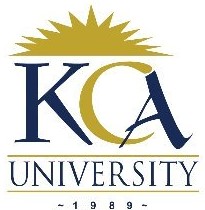
UNIVERSITY EXAMINATIONS: 2016/2017
ORDINARY EXAMINATION FOR THE MASTER OF SCIENCE IN
INFORMATION SYSTEMS MANAGEMENT /DATA ANALYTICS
MDA5404 MISM5405 DATA ANALYTICS AND KNOWLEDGE
ENGINEERING
(SPECIAL/SUPPLEMENTARY)
DATE: DECEMBER, 2016 TIME: 2 Hours
INSTRUCTIONS: Answer Question One and Any Other Two Questions
QUESTION ONE: (20 MARKS)
a) Briefly describe what a knowledge-based system is (1 Mark)
b) List three ways in which a knowledge-based system differ from conventional software.
(3 Marks)
c) All expert systems are knowledge-based systems, but not vice versa. Explain how expert systems
differ knowledge-based systems. (2 Marks)
d) With an aid of a document, describe the end-user’s perspective of a knowledge based system.
(6 Marks)
e) Differentiate the terms “Backward Chaining” and “Forward Chaining” as Knowledge Management
rule based reasoning (4 Marks)
f) List four disadvantages associated with the use of Knowledge-based Systems.
(4 Marks)
QUESTION TWO 🙁 15 MARKS)
a) Today’s decision maker faces the pressure to make better and faster decisions. Briefly describe the
forces driving KM in today’s dynamic business environment. (4 Marks)
b) KM systems are classified based on observations on the KM systems implementations. Briefly
describe the four KM systems implementations. (4 Marks)
c) Differentiate the following forms of Knowledge (3 Marks)
i. Tacit Knowledge
ii. Explicit Knowledge
iii. Procedural Knowledge
d) Explain the four characteristics of knowledge as used in knowledge management. (4 Marks)
QUESTION THREE: (15 MARKS)
a) Knowledge Management Impacts Organizations in several ways. Briefly describe two ways in
which knowledge management impact organization’s products? (4 Marks)
b) Knowledge Management Impacts Organizations in several ways. Briefly describe three ways in
which knowledge management impact organization’s employees? (5 Marks)
c) Knowledge Management Impacts Organizations in several ways. Briefly describe three ways in
which knowledge management impact organization’s processes? (6 Marks)
QUESTION FOUR 🙁 15 MARKS)
a) Define a repertory grid as used in knowledge management. (2 Marks)
b) Several weaknesses of rule-based systems inspired the rise of case-based reasoning in knowledgebased systems. Why do the rule-based systems have difficulties in eliciting, representing, and
validating knowledge from the expert? (3 Marks)
c) Explain the main processes of a case-based reasoning knowledge management system application
in solving a new problem. (5 Marks)
d) Explain how role reversal technique is used in Knowledge Elicitation while developing a case
based reasoning knowledge management system (2 Marks)
e) Inefficient searches due to poor organization can result in unacceptable performance of a case
based reasoning knowledge management system. In which three ways can the knowledge engineer
increase the search efficiency of a case library? (3 Marks)
